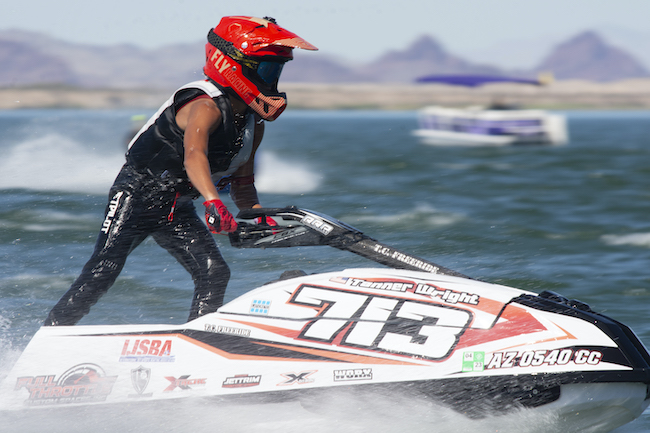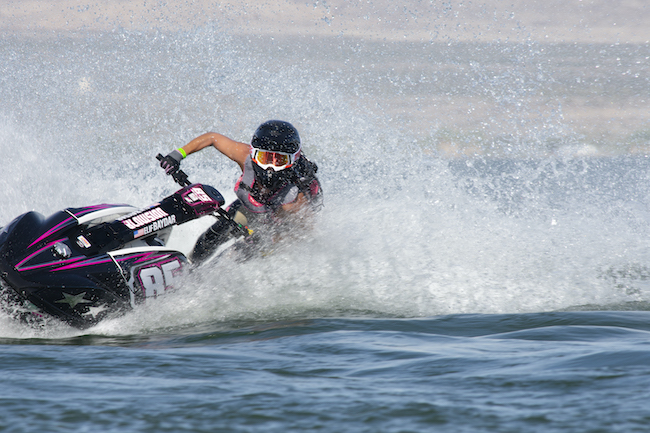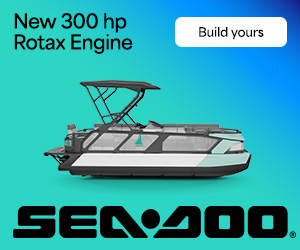 2025 PWC Racing schedules are flooding the social media feeds; the 2025 Boat Show Season is underway, and even though much of the country is a bit of a deepfreeze right now, there is little doubt that many PWC racers are starting to get impatient for the start of another race season.
2025 PWC Racing schedules are flooding the social media feeds; the 2025 Boat Show Season is underway, and even though much of the country is a bit of a deepfreeze right now, there is little doubt that many PWC racers are starting to get impatient for the start of another race season.
And while there are a list of “must dos” for each racer to get ready for that season – from physical training for themselves to upgrades and modifications for their PWC, not to mention the mundane tasks such as trailer upkeep and gear checks, there is one aspect of racing that is not talked about near as much – sponsorships.
While sponsorships may not be the goldmine they once were, there can be no denying the fact that securing sponsorship is a key component of funding your race addiction.
In a 2015 WCJ article, Roger Berkon shared some advice for racers who are looking to secure sponsorships before the 2025 race season, and we thought now would be a good time for a refresher.
At today’s “touring series” level, personal watercraft (PWC) racing is not only becoming a serious sport, it can easily become a business and an investment. It can be an investment in a state-of-the-art PWC, or two, support equipment, a hauler; an investment in team development, crew recruitment and travel to each of a minimum of twelve poorly scheduled geographically divergent race venues per season year.
 Even the well-funded teams and riders are considering outside sources to fund their racing budgets. The outside sourcing, and the search for commercial participants (sponsors) and investors, must be done with the same research and consultation as any other business investment or capital expenditure. You and your outside sources have every right to expect a reasonable return; be it in hard dollars to your race team, or the benefits of brand development programs and campaigns that stimulate higher sales volume and increased traffic resulting in subsequent profit to your outside sources.
Even the well-funded teams and riders are considering outside sources to fund their racing budgets. The outside sourcing, and the search for commercial participants (sponsors) and investors, must be done with the same research and consultation as any other business investment or capital expenditure. You and your outside sources have every right to expect a reasonable return; be it in hard dollars to your race team, or the benefits of brand development programs and campaigns that stimulate higher sales volume and increased traffic resulting in subsequent profit to your outside sources.
The point here is that sponsorship is a vital income source. You must develop this source with the same effort you put into your racing program; you must provide a valuable market service and or advertising vehicle in return for the sponsorship dollars. No longer can you attract sponsors or team investors with flashy graphics, creative numbers or smoke and mirrors.
In the PWC racing world of today, your off-water wars can be won incrementally by producing exciting, informative, efficient communications at every level of your marketing and promotional mix. This holds especially true when you are selling PWC racing. To accomplish this requires thorough knowledge of every aspect of the sport and industry; a carefully conceived strategy designed to impact each of your opportunity areas. These subjects are not the absolute function of advertising or sports marketing agencies. You must develop your own marketing and promotions person; someone that is close to or from within your own race team who can effectively and profitably reach each of your team’s targeted opportunity areas.
You must be aware that successful promotion motivates marketers and increases corporate participation; marketing creates the awareness and demand factors; advertising makes your prospective sponsor/commercial participant take that step toward the buying decision; and in this context the buying decision is “buying in” or making the sponsorship investment.
You and your team’s M&P person must follow a logical, step-by-step, approach in making your marketing effort pay off in maximum profitability. You must consider all available industry data, including trade publication surveys and national trade show profiles. This research is your only way to determine the targeted markets’ moods, actions, and emotional hot buttons.
You must maintain constant awareness of your competition off-water as well as on-water; follow their marketing and commercial participant solicitations; make on-site pit visits as well as in-shop visits and when the opportunity arises, use their events and promotions, as well as your own, as directional factors. In this way you will further develop your ability to attract sponsors and produce team income through commercial participation and promotion.
It is imperative that your race team be clearly positioned as the best available in the minds of your audience and your targeted market. This demands properly focused and consistent communication; an image that is positive and memorable, and performance on and off the water that delivers!
Any age-old misconceptions about PWC racing must be dealt with and dispelled. Fortunately, through the effort and continuing success of race organizers AquaX Series and subject-specific publications such as The Watercraft Journal, plus the never-ending support of manufacturers such as Yamaha, Kawasaki, Sea-Doo and high-end tuners RIVA MotorSports, there are few remaining negative misconceptions; however, never lose site of the fact that the developing new image and the real potential for commercial benefits in PWC racing are still unknown by most of your out-of-industry targeted markets.
Your overall presentation must be sophisticated, tasteful and in keeping with the desired image; your success will be achieved by impacting the key purchasing influences; namely the prospective sponsor’s perception, executive’s opinions, and the marketing team’s recommendation. Do not forget that the buying decision, in your targeted market, is based primarily on self-gathered data and the information you presented. If budgets restrict you to only one informational piece be sure to include a section designed as a guide to PWC racing. Keep in mind that the typical corporate marketing person’s experience with PWC racing is limited to the scant coverage on TV or what very little is in the local sports pages.
Position your race team clearly as the ultimate in the market, try a thematic approach; youthful, well spoken, the ultimate product or corporate representative; the finest PWC racing team in the sport today and you are totally committed to racing for “podium-finishes” in the best racing series. Capitalize on existing mystique through an image-oriented campaign in the appropriate media; create your rider’s celebrity, or perhaps you are owned by a South Pacific Coconut Plantation or your Crew Chief breeds porcupines in the off-season. Establish and maintain share-of-mind. Create and capitalize on all PR opportunities whenever possible, particularly with regards to your participation in the racing series and its related special events. Clearly communicate the advantages and benefits of an association with your team and the series.
Produce highly informative social media content in such a way that all key advantages are depicted, tell the story and effectively position your team in the minds of commercial interests and out of industry sponsor prospects.
It is vitally important that your team be organized in a business-like manner and is structured in such a way to properly receive and justify sponsorship income. You must stay focused on the commercial objectives of the sponsor/investor as well as your race team. And at all times consider your combined liability exposure and limit your risks as much as possible and continue the building and development of your team management, staffing and race equipment development.
To consider doing it any other way will lead to a very short, albeit exciting, venture into PWC racing lasting only as long as your financial resources or your willingness to keep writing checks. If you feel that you need help in any of the areas above, seek professional advice. It may make the difference that allows you to realize your goals in this wet and exciting segment of power sports racing.





